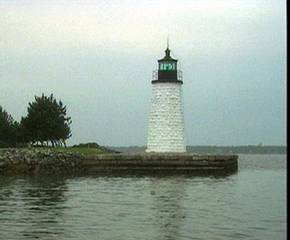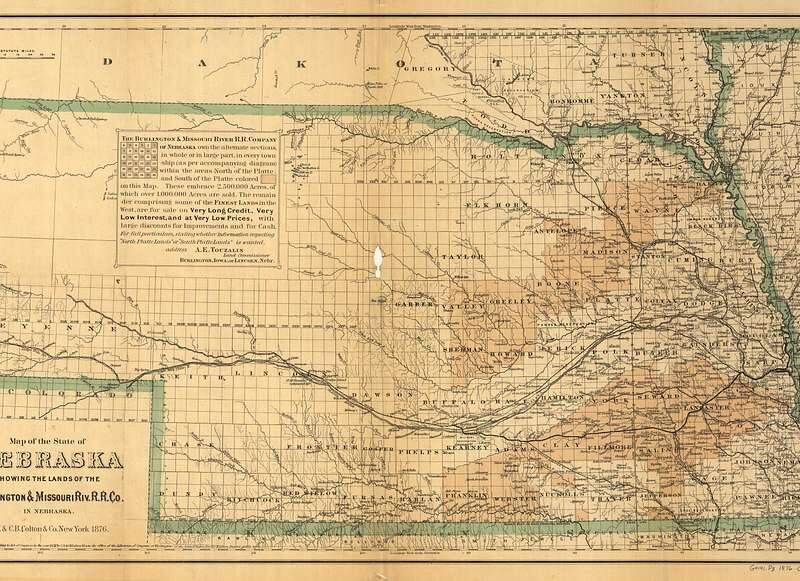By David Martin
Every year after school starts in August, one of my earliest writing assignments in English class is to encourage students to write a thank you letter to a favorite, “lighthouse” teacher. As a team, we try to find mailing addresses in phone books or online, so students can send real letters to people who made a difference in their lives. It is a long process for some, because many years have passed, some moved out of state, and students and teachers lost touch with each other. However, after serious “detective work,” most students find a good address and complete the task. It is the most rewarding writing assignment of the year for everyone.
Les Whipp was my “Lighthouse Teacher.” His light went far into the darkness, when he found me lost at sea, while teaching composition to 240 teenagers every day. He was a beacon of hope, inspiration, and vision. We met in 1979 when he welcomed me into the Nebraska Writing Project (NeWP) workshop in Omaha at Technical High School, and he kept that light burning brightly until the end, when he died August 29, 2009, at his home near Poulsbo, WA.
Les was my teacher and guru. In one semester, he taught me more about writing and teaching than I learned in all of my education classes combined. He helped me realize that I was an unconventional learner and one of my positive traits was that I could teach non-traditional students, because I enjoyed listening to their stories. He showed me how the best of teacher education can be summarized into three sentences, as they are applied to students. “I like you. I hear you. Let’s work together on what you are saying.”
I could not have lasted thirty years in public education without Les, NeWP (which he started at UNL), and what I learned from them both. Many others must have had the same impression of him as I did, because the University of Nebraska, presented him with the Distinguished Educational Service Award in 1985, the Distinguished Teaching Award in 1989, and the University-wide Departmental Teaching Award in 1994.
Everyone who knew him felt Les was “more.” Even after he began chemotherapy for his pancreatic cancer, he would send me a note like the following: “I have been thinking about ‘the purpose of education.’ Sounds grim, doesn’t it? Pretentious. I’ll write it out when I feel stronger. Vivian and I went to see the movie The Boys of History, based on Alan Bennett’s award winning stage play of the same name, and with the same cast, in fact. The movie explores that question by having two contrasting teachers in the equivalent of a private secondary school in England; the boys have satisfactorily completed their last term, and done so well that the school is going to give them a summer school, prepping them to make successful applications to enter Oxford or Cambridge, something previous classes from this unprepossessing school have not been very successful at doing. The older instructor teaches students to understand the human condition (and to resist “education”). The younger one teaches students that there is no truth; there is only effective or ineffective presentation, success at test taking, paper writing, self-presentation, and the manipulation of others. When the boys are asked for their vision of themselves in 20 years, only one of the boys incorporates the older teacher’s lessons. Of course, that’s what Paul Olson’s wonderful book The Journey to Wisdom is all about, the intellectual background of the two views of education, beginning with the Pre-Socratics and going through the Renaissance. With all of the emphasis on standardized testing, normative curricula, and the importance of grades, I think the issue is worth exploring a little, even though I’m not very competent to do it. So I’ll write something up for you, later.”
In his gentle, soft-spoken ways, Les taught profound ideas and how we, his students, could make a difference, simply by trying to be the best people we could be. Every time we found the courage to write with passion and meant what we said, little ripples went forth into the world. In every class, when we pushed ourselves to be better and work “smarter,” we learned something new about our teaching-writing craft. Going to class with Les started to feel like going to a temple, a holy place, where using words well placed a spark of light into readers’ eyes. He taught us to accept our gifts of insight, humor, and love of language that were meant to be shared with others. Then, he told us to “sail on.”
A great teacher, yes, but he was more of a friend to everyone. He accepted students as they were. Why he believed in us so much, I do not know, but he never seemed to give up on us. I laughed loudly once, when I mentioned to him that I was having a tough time finishing a creative writing assignment, and he said, “Well, as a person, you are not finished growing, either. Aren’t parts of you still unfinished? Just keep writing.”
He seemed to give, unconditionally, and told us to be honest with ourselves. He did not judge us but offered support. Every class picked me up, emotionally, and quieted my fears. He said nice things about everyone. He understood us more than I will ever understand. I never had a teacher who enjoyed “walking with us” so much. Most teachers have to be out in front and leading the group, but he was quite content to journey with us, like a fellow student, and enjoy the process of discovery, as we did.
Les had unquantifiable power. He was like an old balance scale that could weigh emotion and reality. His words were incisive, and he could paint metaphorical images. His elegant words explored the universe with finesse. Daily, he demonstrated clarity, immediacy, and simplicity. With a smile, he pointed out life experiences, including loss and love. With a turn of a phrase, he took us from sadness to laughter.
I never could explain why I often heard Beethoven’s music in my head when I listened to him talk. Some of his seminars appeared spontaneous, but later, I saw how they developed more like symphonies of exploration into what it is to be alive. They opened doors of insight, memory, and wonder. They were full of prose and poetry. They concentrated on sense and impressionism. They were full of detail and hope. He used so many “instruments” that his words became melodious notes of harmony.
Les was so humble that he would blush, probably, if he read this “lighthouse” letter, but he brought so much illumination into the lives of others, and I am grateful to have known him for as long as I did. In front of the class or talking quietly about favorite topics, he sparkled. Seldom do any of us find a person who gives us radiant light to see through the dark night and helps us pass around rocky shores to witness the dawn in our personal lives. Bless you, Les, on this final journey.



